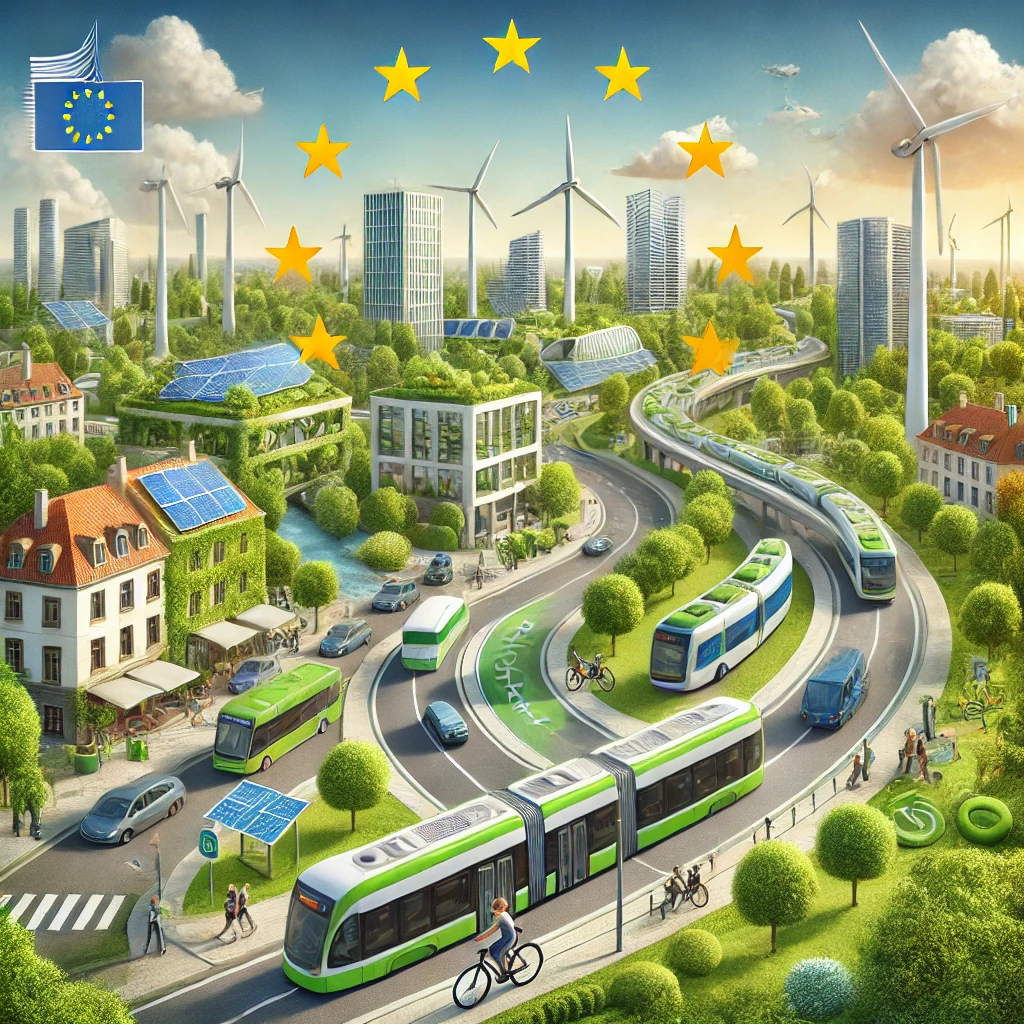Knowledge Agora
Regenerative Economy Challenge
Challenge: European Green Deal

The European Green Deal is a comprehensive policy initiative launched by the European Union (EU) aimed at making Europe the first climate-neutral continent by 2050. It sets ambitious goals to reduce greenhouse gas emissions, promote sustainable economic growth, and improve the quality of life for EU citizens. One of the key targets is a 55% reduction in greenhouse gas emissions by 2030 compared to 1990 levels, pushing member states to transition towards cleaner energy and industrial practices. The Green Deal promotes renewable energy, like wind and solar, and emphasizes energy efficiency across all sectors, from buildings to transportation.
In the agriculture sector, the Farm to Fork Strategy seeks to create a sustainable food system by reducing pesticides, promoting organic farming, and ensuring food security. Another vital component is the Circular Economy Action Plan, which focuses on reducing waste and promoting recycling and resource efficiency, particularly in industries like electronics, textiles, and plastics. Biodiversity protection is also a priority, with goals to restore degraded ecosystems, protect endangered species, and improve land and ocean conservation. To support these transitions, the EU has set up the Just Transition Mechanism, which provides financial and technical assistance to regions and industries most affected by the green transition, ensuring no one is left behind.
Funding for the European Green Deal will come from a combination of EU funds, national budgets, and private investments, mobilizing at least €1 trillion over the next decade. Carbon pricing, through the EU Emissions Trading System (ETS), is a critical tool to incentivize industries to cut emissions, while carbon border adjustment mechanisms prevent "carbon leakage" by taxing imported goods based on their carbon footprint. The Green Deal also supports innovation, research, and development in green technologies, helping Europe remain competitive on a global scale. Additionally, the European Climate Pact encourages citizens, businesses, and communities to participate actively in climate actions, fostering a culture of sustainability.
The Green Deal addresses climate adaptation as well, preparing cities and communities for the impacts of climate change, such as extreme weather and rising sea levels. It also aims to improve air quality, protect public health, and enhance the urban environment, creating healthier, more livable spaces. Through these combined efforts, the European Green Deal envisions a future where economic growth is decoupled from environmental degradation. By setting an ambitious example, the EU hopes to inspire other countries to adopt similar initiatives, accelerating global progress towards a sustainable future.